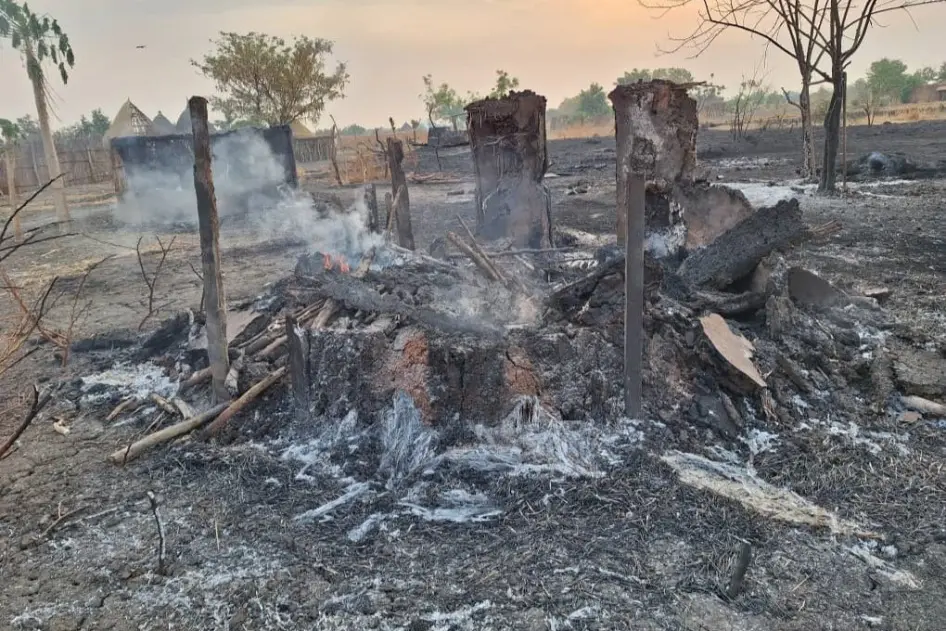Since gaining its hard-won independence in 2011, South Sudan has faced challenges. Along with ethnic and tribal conflicts, the main problems have been civil wars, leadership strain, and governance crises. One of the main concerns has been the power struggle between the Nuer and Dinka. A horrific civil war broke out in December 2013, during which a large number of Nuer people were slaughtered in the capital city of Juba, as a result of a severe disagreement between President Salva Kiir and Vice-President Dr. Riek Machar about who should rule the nation. Several agreements were reached, but nothing concrete came of them.
Significant indications of civil unrest were the recent bombing of Nuer villages in Fangak and Nasir. Beginning in early March 2025, aerial bombardment of Nasir persisted until people were forced to flee to the border of Ethiopia and South Sudan. Huts were set on fire, and many lives were lost. Their government shelled their villages, leaving the Nuer inhabitants confused and in despair. The White Army, a representation of power in Nuer territory, left Nasir County without encountering any opposition. As civil defence forces, the White Army is only interested in defending their territory against invasion by their government; they have no interest in changing the administration or pursuing political goals.
To undermine the ethnic Nuer and eliminate any possible danger to the rule, the Dinka governing elites have used the White Army’s association with Dr. Riek Machar as a political strategy to drive them from their homeland. The Nuer community’s inflow along Ethiopia’s borders is horrifying and cruel, as many citizens are left without assistance. A humanitarian catastrophe is imminent. The mob was surrounded by death, disease, hunger, and poor sanitation and hygiene. In Nasir, the kids no longer attend school. Amid an ethnic conflict that targets Nuer people, there is no glimmer of hope for desolate citizens who have been abandoned by their government.
Although the UNHCR has given some food assistance, it has not appeared to be enough, given the high number of people. The whole MSF hospital in Old Fangak was set on fire after it was purposefully blasted earlier on 3 May 2025. In the isolated Fangak county, it was the only hospital serving almost 110,000 civil residents. According to international humanitarian law, attacking a hospital constitutes a war crime.
According to the R-RCSS agreement reached in 2018, the White Army’s demand before the commencement of the conflict in Nasir was straightforward: the deployment of unified forces. However, the Abushok and Agwelek tribal militias, which are made up of Dinka and Chollo ethnic groupings, were used by President Kiir’s government. The idea was obviously an attempt to sow ethnic division among the nearby Dinka, Chollo, and Nuer people in the Upper Nile Region. Although General David Majur’s death was appalling, the dictatorship shouldn’t use it as justification to randomly attack innocent Nuer civilians, destroying their homeland in the process. In the states of Lakes and Warap, similar confrontations involving Dinka armed youth and the South Sudan People’s Defence Forces (SSPDF) occurred. To fight them, the regime did not, however, enlist outside troops like the Ugandan People’s Defence Forces (UPDF). Rather, in the majority of cases, the disputes were settled amicably.
The administration will be weakened by this ethnic targeting of the Nuer, and the ethnic gap between the Dinka and Nuer will widen. In South Sudan, using ethnic division to wield political power will create a precedent that could lead to other ethnic groups gaining power in retaliation against the Dinka.
This would be detrimental to South Sudan’s institutional growth. Because of these ethnic tensions, the regime’s future would be in jeopardy. The administration should prioritise development and uphold the rule of law rather than widening the racial divide. The only thing that can save the people of South Sudan is the establishment of institutions and the rule of law. Establishing institutions and advancing the rule of law require civic education.
The author, Gak Deng Woul is a South Sudanese researcher and political activist based in Australia. He holds Master’s of International Relations from Deakin University and a PhD on Migration and Refugees’ Settlement Policies from Monash University. He can be reached on gakwoul@gmail.com.
The views expressed in ‘opinion’ articles published by Radio Tamazuj are solely those of the writer. The veracity of any claims made is the responsibility of the author, not Radio Tamazuj.




